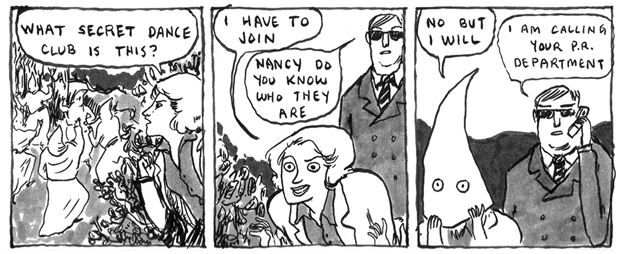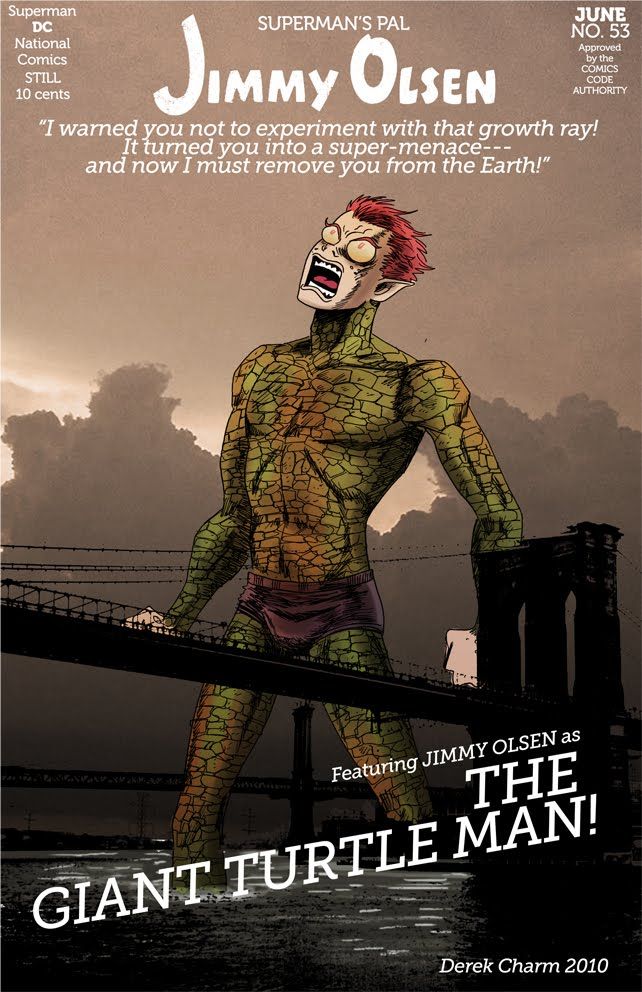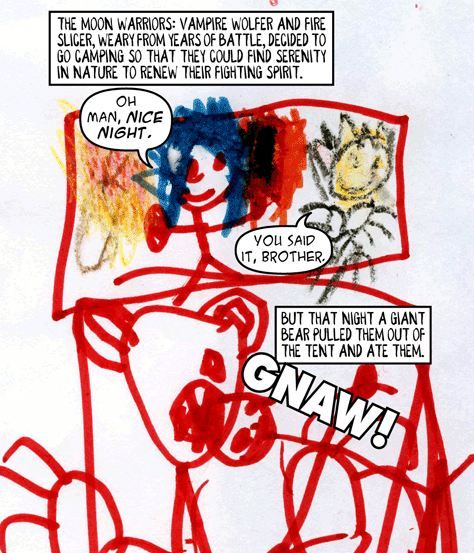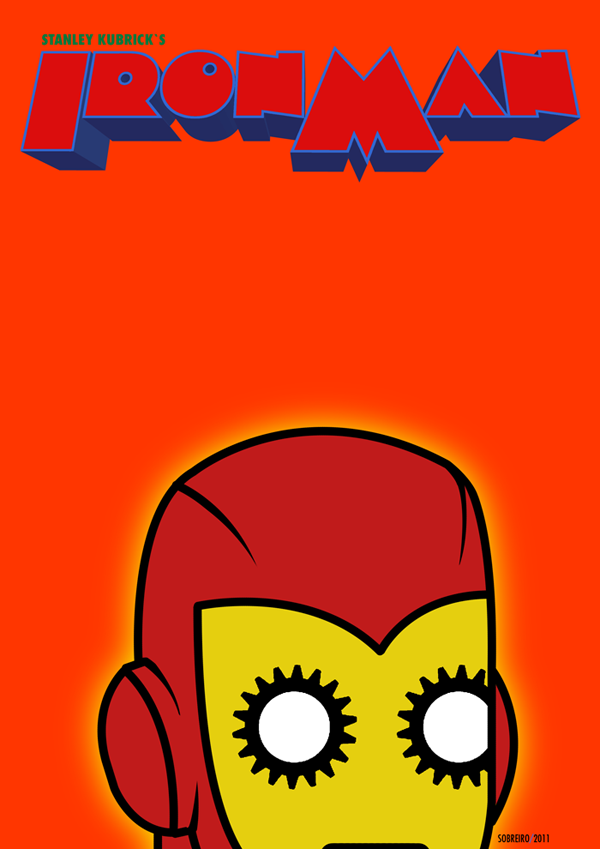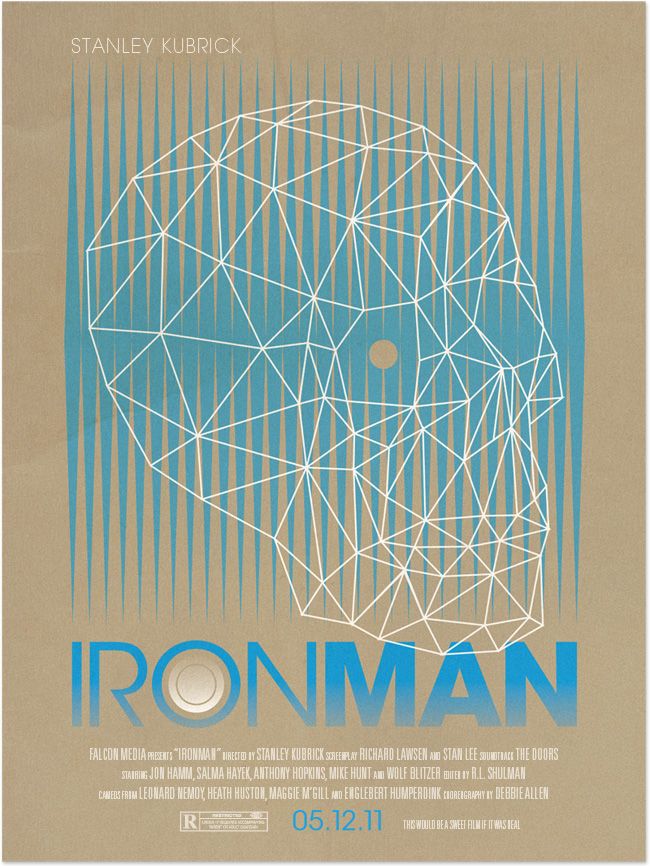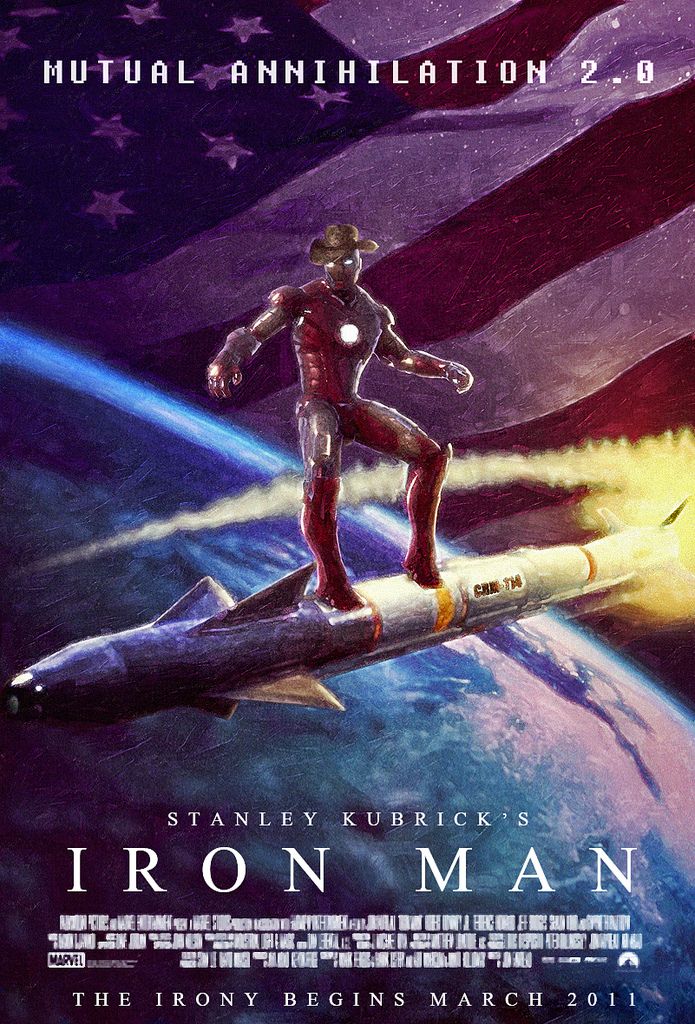In which the author gives himself an existential crisis about the state of pop culture, and also links to a picture of a bear eating a space ninja
NARCISSISM DEPT: Hey, they talked about me on this week's episode of CHOP!, the Axe Cop podcast. I'm still blushing, guys.
SO Patton Oswalt's article for Wired has been making the rounds. In it, he mourns the loss of nerdity and geekdom as he came of age with it, and prophesies the Etewaf (Everything That Every Was, Available Forever), a future in which the ubiquity of the Internet and Netflix streaming and pop culture being at everyone's fingertips causes a sort of Nerd Singularity, a very pop culture apocalypse, after which we can rebuild, piece by piece.
Jeff Lester and Graeme McMillan, on their latest Wait What podcast, rip on Oswalt for displaying such monumental fan entitlement in this article. Rereading it, I can see what they mean-- Oswalt seems to be decrying the loss of geekdom, upset that the Internet's ability to keep everything that ever was around and available at a moment's notice has killed his "thought-palaces." Yes, Oswalt's descending into self-parody here-- he is a comedian, after all-- but I think he has a point. Pop culture is eating itself.
Back in Oswalt's day, nerds weren't outcasts or hipsters-- they were a community. They couldn't look Vincent Price's filmography up on IMDB, or read about Doctor Who's regeneration cycle on Wikipedia-- they had to discover these things, investigate the culture around them. They couldn't pull up a quick torrent of Joe Simon's Brother Power, the Geek-- they had to hunt for it. Now, geek culture is mainstream culture, and technology has allowed any bored individual to become an expert on any subject. Being a nerd is no longer a skill, and no one's nerdity is inherently better than anyone else's. And you know, that's a good thing.
But I think Oswalt's also saying that we're reaching a critical mass of pop culture, and that it's devouring itself, like a giant ouroboros made out of omnibi of Secret Wars II and lunchboxes from the 1980s. Pop culture is now about pop culture-- pop culture has replaced regular culture! Do we really need a remake of I Spit on Your Grave, or, in fact, a remake, rehash, revamp, reboot, retread, reimagining of anything? When everything we read or see is derivative of something else, what does that make us? Cultural cannibals? There is, after all, only so much energy in the universe that can be converted into a picture of a cat on the internet. Will there be room for original ideas? As Oswalt says, "Etewaf doesn’t produce a new generation of artists—just an army of sated consumers. Why create anything new when there’s a mountain of freshly excavated pop culture to recut, repurpose, and manipulate on your iMovie?" If the engine of pop culture is fueled by inspiration and nostalgia, what happens when things never go away? When we don't yearn for what we remember being good, and try to create something akin to that, because we don't need to remember it, because it's three clicks away? Faulkner was right-- "The past isn't dead. It isn't even past." And now we're wearing that on a t-shirt. What happens when we get complacent, and lazy, and stifle the creation of new things?
I get what Oswalt's saying, and his scorched earth theory is certainly interesting. But again-- I like that so many great old comics are back in print and available for new generations to consume. I like that I have 400+ movies in my Netflix Instant queue, available at whim. I like that so much culture is within reach, that I can experience all these things that I wouldn't otherwise be able to, that Some Guy on the Internet has provided something for me, whether it's a copy of an obscure Sega Genesis video game or a biography of Edward James Olmos. If I'm so busy watching every episode of the X-Files end on end, however, or reading every blog post about Sarah Palin, how will I ever get anything done? I won't. And that, my friends, is why my 2010 disappeared in the blink of an eye.
Now, consume these internets, and be sated, but remember what I said above, and note how closely the following relates to it:
NEW ABHAY!: In which the author compares X'ed Out unfavorably to Joe the Barbarian and realizes G-Mozz Batman is the same as G-Mozz something else:
However much his BATMAN run might have concluded in some bizarre out-of-nowhere affirmation of friendship, it’s such a lonely comic. It’s not difficult to read the BATMAN annotations and imagine Morrison himself as no longer King Mob, but become Ragged Robin– trapped now, trapped by his career, trapped by a DC Universe he’s wished “alive,” trapped in a room with old Silver Age comics, gone sad trying to figure out how he can get them to make sense. THE INVISIBLES was about authors and fictions, but it was also about music, poverty, ex-girlfriends, and poetry. BATMAN is about Batman, wall-to-wall Batman, a black hole of Batman that life can’t escape.
And you know, he's right about the Batman stuff, except I would say it reads more to me like a retread of New X-Men, only not as good! But I am enjoying Batman Inc a lot so far, so there's that.
ITEM! Frank Santoro discusses Art Spiegelman's process and philosophy, and how Santoro has incorporated it into his own work-- "the mark you make is the mark you see":
First Spiegelman would sketch out the page in yellow colored pencil on 8.5 x 11 inch tracing paper. Then he’d lay another sheet of tracing paper over the first (yellow) layer and pick out the lines he liked in red colored pencil – shaping up the figures and backgrounds on the fresh sheet. Then he’d take the red layer and lay another sheet of clean tracing paper over that and using a blue colored pencil he’d pick out the best lines from the red layer. Each layer become less and less sketchy and the whole composition came into focus from light to dark. ... Looking at the whole exhibition, I remember being struck by the scale of it all. It was epic yet it was possible to contain it all on a small desk. It did feel like writing
ITEM! Bill Sienkiewicz talks about the lost issue of Big Numbers, and his process on the unfinished Alan Moore-penned series:
I pride myself on being a professional, - more than ever these days - and I felt like Big Numbers became my Moby Dick - the great white metaphysical whale that had gotten away from me.
COVERED! Derek Charm draws him some Jimmy Olsen:
ITEM! Tom Spurgeon continues his series of interviews with Kelly Sue DeConnick. Her method of writing pages-- dialogue first, panels second-- isn't one that would have occurred to me for some reason, but I'm going to steal it forever, now:
Okay, so, when I get to scripting, I've already got my outline. So I know what the scene is and who's in it. Without sounding too pretentious -- I hope! -- I just kind of let them talk. It's like... well, I was an actor, right, but I was also a professional improv actor for three-plus years. So, it's like improvising a scene -- only I'm playing all the characters. I take down the dialogue and then I go back and look at it. I cut what I don't like. Then I start breaking the scene down into beats the very same way an actor breaks down a script. The big beats? Those are page turns. The smaller ones are panel breaks. More important beats call for bigger panels -- though I never dictate that sort of thing, I only suggest.
The Spurge also talks to Dirk Deppey, whose run as the Internet's Foremost Linkblogger at Journalista has just come to an end.
KATE BEATON draws Nancy Drew:
ITEM! Graeme McMillion$ praises DeFalco and Frenz's Thor, disses Fraction and Ferry's. Has the DeFalco and Frenz run's time come at last? I love those comics.
CATCHING UP WITH COLIN SMITH: He writes faster than I can link! First, Mr. Smith continues discussing Stan Lee's Avengers, and eventually compares them to Bendis'-- and lo, the differences, they aren't decidedly remarkable. Meanwhile, he drops this choice quote:
This relentless reductionism, this paring down of imaginative possibilities to their irreducible core in the search for constancy and continuity and serious-mindedness, leaves us with two key problems. The first is that creators often cease to consider entertainment as their priority. They become custodians rather than entertainers, reproducing whatever today's canon argues is the acceptable minimum, and so the decades-long cycle of ever-diminishing inventiveness continues. The second is that the possibilities offered by the very presence of superpowers become something of an embarrassment, to be ignored as much as possible unless they can be justified in terms of a spurious realism.
And also he's got a cool piece about Dr. Strange, the world's most adult superhero!
AXE COP MOMENT OF THE WEEK: A very special episode in which Ethan writes and Malachai draws!:
But what kind of bear is it? Read on!
REMAKE/REMODEL, at the behest of Mad Old Ellis, is Stanley Kubrick's Iron Man. Stepping up to the plate are Felipe Sobreiro, harper, and valdopeixoto (click to enlarge):
Follow the link for many more.
DOCTOR WHO DEPT: Hey, this time it's related to comics! Comicsy folk talk about Doctor Who. We've got Nick Abadzis on the Second, Paul Cornell on the Third, Pia Guerra on the Fifth (what a marvelous piece this is), and Mark Waid on our current Doctor, #11. I think Waid's cracked why the Eleventh Doc is so great:
One little bit I’ve noticed about the Eleventh Doctor that I find uniquely endearing even though it speaks almost exclusively to me, a lifelong comics fanatic: he dresses exactly like Jimmy Olsen. Exactly. The tie, the tweed jacket, the patterned shirt...I’d swear this Doctor raided Jack Larson’s wardrobe from the old Adventures of Superman set. The Doctor is an alien who flies through time and space battling galactic conquest and enjoying world-shattering exploits while wearing a bowtie. He’s like Superman dressed in Jimmy’s clothes. And that’s cool.
That is cool.

